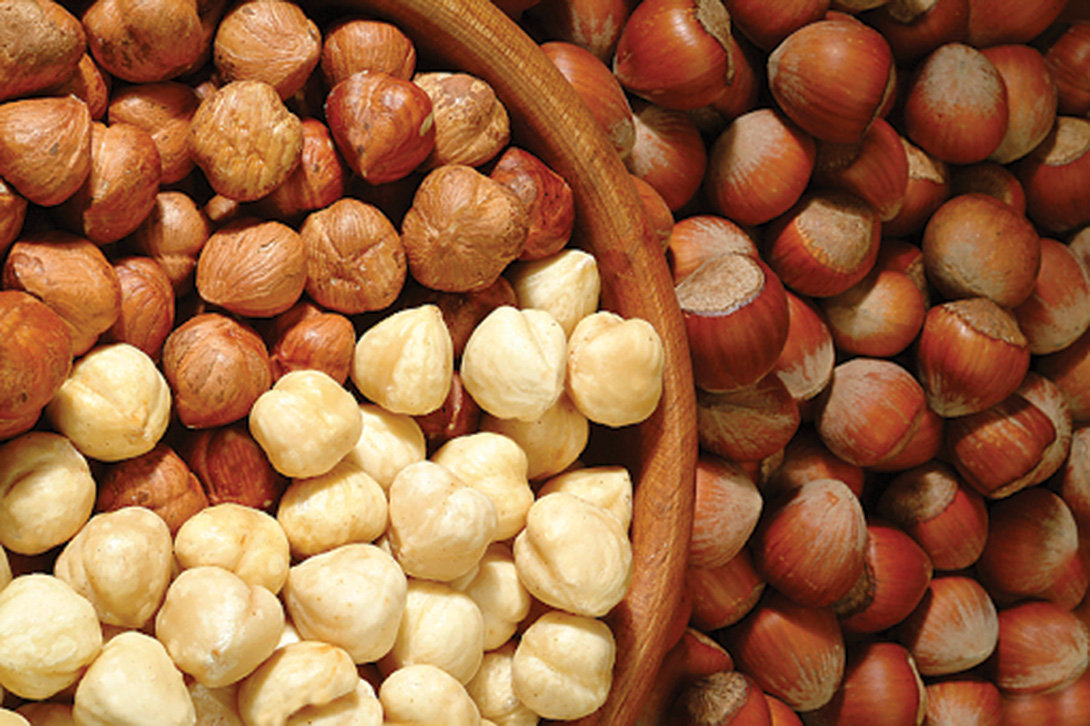Investment News
Investor.ge provides a brief update on investments and changes in government policy that could impact the business environment. Information in this issue was taken from agenda.ge and other sources.
ADB: Georgian economy to grow 8.5% in 2021, 6.5% in 2002
The Georgian economy is expected to grow 8.5% in 2021 driven by an expansion in agriculture, industry, and services as well as the gradual lifting of restrictions imposed due to the COVID-19 pandemic, the Asian Development Bank (ADB) said in its annual economic publication the Asian Development Outlook 2021 Update.
In addition, the bank predicts the Georgian economy to grow a further 6.5% in 2022.
The ABD also notes that the country’s strong rebound from more than a 6% contraction last year to growth of 12.7% in the first half of 2021 following significant government support to firms and households as well as sizable assistance from development partners.

Georgian wine exports up nearly 20%
Georgia exported 65 million bottles of wine to 59 countries in January-August 2021, which is an increase of 19% compared to the same period of 2020, says the Georgian National Wine Agency. Wine exports generated $145 million in revenue, which were up 13% YoY.
This news comes after Prime Minister Garibashvili announced in August that the government intends to help boost wine exports to $1 billion in the next 10 years.
Garibashvili also noted that the government has allocated 100 million GEL to subsidize the grape harvest in 2021 and help about 25,000 wine growers and producers avoid negative impacts of the COVID-19 pandemic.
The Georgian government announced in September that it had approved a new state program to co-finance marketing campaigns of wine companies in new export markets.
The program, which will exclude marketing for Russia and CIS countries, will be implemented by the National Wine Agency and have a budget of 3 million GEL.
Georgian National Bank increases refinancing rate to 10%
The National Bank of Georgia (NBG) announced after the August meeting of its Monetary Policy Committee that it planned to increase the refinancing rate by 0.5 percentage points to 10%.
Georgia’s annual inflation came out unexpectedly high in comparison with last year and amounted to 11.9% in July, the NBG stated.
The NBG reported that various factors contributed to high inflation, such as sharply increased prices of food and oil in international markets as well as significantly increased international shipping costs, which affects the prices of imported goods.
“The short-term inflation forecast has increased considerably compared to the previous forecasts, and it is expected that inflation in 2021 on average will be higher than 9%,” the statement of the NBG reads.
NGO Society and Banks stated that 140,100 loans tied to floating interest rates remain active as of July 1, 2021, which means that the prices of these loans may grow as well because of the increased refinancing rate.
Georgian economy grows 10.3% in August, 12% in the first eight months of 2021
The estimated real GDP growth rate in August 2021 amounted to 10.3% YoY and 12% YoY in January-August of 2021, shows preliminary data from Geostat.
Last month, the following industries of the economy posted growth compared to the same period of the previous year: manufacturing; financial and insurance activities; trade; electricity, gas, steam and air conditioning; hotels and restaurants; transportation and storage; arts, entertainment and recreation. A decline was registered in construction, mining and quarrying.
Georgian Prime Minister Irakli Garibashvili said that the economic growth data of Georgia ‘is unprecedented in the region’ and it became possible to achieve high economic growth thanks to state programmes such as Preferential Agro-Credit, Produce in Georgia, and Plant the Future. He said that starting in 2022, the government will implement larger programs and will invest 2.5 billion GEL ($803.9 million) in the development of local production while 7 billion GEL ($2.25 billion) will be invested in agriculture.
Money transfers to Georgia up an average 10.8% in July and August
Georgia received $413.3 million from abroad in July and August 2021, which is 10.8% more than the amount received in the same period of 2020, the National Bank of Georgia reports. The largest remittance senders were Russia ($77.8 million), Italy ($66.9 million) and the United States ($50.1 million).
Revenue from international tourism up 45.6% in January-August
Georgia received $703.9 million from international tourism in January-August 2021, which is 45.6% more compared to the same period last year.
In August alone, Georgia received $198.8 million, which is an increase of 1,243% compared to 2020 and a decrease of 51.8% compared to the pre-pandemic year of 2019. Georgia hosted 266,544 visitors in August 2021, which is a 510% increase compared to the same month of 2020; however, it is still 75% less than August 2019.
The top ten countries that tourists came from were: Russia, Turkey, Ukraine, Georgia (non-residents), Armenia, Saudi Arabia, Belarus, Kazakhstan, Azerbaijan, and Poland.

Tbilisi International Airport ranked among the best airports in Eastern Europe
Tbilisi International Airport has been named one of the best airports in Eastern Europe for the eighth time in a row by Skytrax World Airport Awards 2021. Ten airports were named the best airports in Eastern Europe in 2021, in which Tbilisi International Airport took sixth place.
The survey evaluates customer satisfaction across 39 key performance indicators for airport service and product,” said the sole operator of the Tbilisi and Batumi airports, TAV Georgia. Tbilisi International Airport won the Golden Brand in the category of Public Transport and Service in 2011 and the Routes Airport Marketing Award in 2013.
Fraser Institute report: Georgia 5th in world in terms economic freedom
Georgia has taken 5th place among 165 countries in the world in the economic freedom annual report published by the Fraser Institute. Last year Georgia took 8th place among 162 countries in the same report. The report measures economic freedom based on regulation, freedom to trade internationally, size of government, property rights, government spending, and taxation.
Fraser’s report notes that “people living in countries with high levels of economic freedom enjoy greater prosperity, more political and civil liberties, and longer lives.”
Annual inflation at 12.8% in August, breaking 10-year record high
The annual inflation rate in August amounted to 12.8%, Geostat data shows. With regard to the annual core inflation, prices increased by 6.7%, while annual core inflation without tobacco amounted to 6.8%.
The annual inflation rate was mainly influenced by price changes for the following groups: food and non-alcoholic beverages (+16.2%); transport (+22.5%); housing, water, electricity, gas and other fuels (+11.6%); and health (+10.9%).
Turkey, Russia, China – top trade partners in January-August 2021
Turkey ($1.28 billion), Russia ($1.01 billion) and China ($941.3 million) were Georgia’s top trading partners in total external trade turnover in January-August 2021, according to preliminary data from the National Statistics Office of Georgia.
In the reporting period, Georgia’s top trading partners by exports were China ($421.8 million), Russia ($377.1 million) and Azerbaijan ($347 million), while top trading partners by imports were Turkey ($1.07 billion), Russia ($634.8 million) and China ($519.5 million).
The top three exports were copper ores and concentrates ($ 517.9 million), motor cars ($293.4 million), and ferro-alloys ($265.5 million). The top three imports were motor cars ($547.6 million), petroleum and petroleum oils ($492.1 million), and copper ores and concentrates ($ 445.9 million).
Overall, Georgia’s external trade turnover amounted to $8.68 billion in January to August 2021, which is 22.3% higher compared to the same period of the last year.The value of exports increased 26% and totaled $2.61 billion, while imports also increased 20.7%, amounting to $6.07 billion.
Unemployment up 3.8% in Q2 of 2021
The unemployment rate in Georgia has increased 3.8% in the second quarter of 2021 compared to the same period of last year, amounting to 22.1 per cent, the National Statistics Office of Georgia reports. In the reporting period, the economically active population came to 51.4% of the working age population (aged 15 and older).The economic activity rate has increased by 1.1%, while the employment rate decreased by 1.0%.
Georgian Economy Minister Natia Turnava says the increased unemployment rate in the second quarter of 2021 is related to coronavirus restrictions imposed in the same period of last year.
People who lost their jobs last year were represented in statistics in the following period. This circumstance largely explains the increase in unemployment in the second quarter of this year,” Turnava stated.

EU simplifies export procedures for Georgian hazelnuts
The EU is simplifying the export procedures for Georgian hazelnuts as a result of an increased confidence in the quality of Georgian hazelnuts and an effective policy of state control, announced the National Food Agency of Georgia.
Specifically, the standing committee on plants, animals, food and feed of the EU Commission’s Directorate-General for Health and Food Safety has decided to reduce the frequency of inspection of Georgian hazelnuts exported to the EU.
The agency reports that the decision of the committee was based on the measures taken by Georgia in 2020 to comply with the requirements of the European Union and avoid aflatoxin contamination.
The decision was made on July 9 and came into force on July 29.
Georgia exported 18,000 tonnes of hazelnuts abroad in 2020, which is a 34% increase compared to 2019, says the Ministry of Agriculture of Georgia. To the EU alone, Georgia exported 12,900 tonnes of hazelnuts last year, 59% higher than 2019.
Statistics show that 44% of agri-food exports from Georgia to the EU come from hazelnuts, followed by wine (15%) and mineral waters (15%).

New roads connect Georgia’s capital and regions
Progress on the Rikoti Pass highway, a mountain pass which divides Georgia into its eastern and western parts, is moving steadily forward with the opening of two lanes of a four-lane section in late September.
A total of 51.6 km of roads are planned to be built on the Rikoti Pass, which will include 96 bridges and 53 tunnels. So far, eight tunnels have already been carved.
Minister of Infrastructure Irakli Karseladze says that 80% of the Rikoti Pass project is in the active construction phase. About 2.6 billion GEL ($836 million) will be spent on the construction of all roads on the Rikoti Pass.
On September 28, a 51 kilometer road connecting the two Georgian regions of Zemo Imereti and Racha also opened, shortening the distance between the two regions by 80 km and reducing travelling time by 1.5 hours.
Georgian Prime Minister Irakli Garibashvili said that thanks to the new road, it will now be possible to travel from Tbilisi to Racha in about three hours. “This is a very comfortable road for our citizens, the population of Racha, the population of Upper Imereti and our tourists and vacationers,” Garibashvili said. Construction of the new road was financed from the budget and cost around 111 million GEL ($35.7 million).
Average salary increases by 15.5% in Q2 2021
The average monthly nominal earnings in Georgia increased by 15.5% (+177.9 GEL) in the second quarter of 2021 compared to the same quarter of the previous year and amounted to 1,328 GEL ($428), reports the National Statistics Office of Georgia.
Georgian Economy Minister Natia Turnava said that following the recovery of the economy, the salaries of employees in a number of sectors have improved.
The highest increase in monthly earnings were observed in the following fields: financial and insurance activities (+15.4% YoY); information and communication (+12.4% YoY); construction (+23.7% YoY); and professional, scientific and technical activities (+7.4% YoY).
Finance minister presents 10-year development plan
Georgian Finance Minister Lasha Khutsishvili presented his ministry’s 10-year development strategy in August, which aims to tackle poverty and unemployment as well as increase overall economic well-being in Georgia.
The proposed macroeconomic stability plan and reforms aim to ensure high economic growth. They include: reducing foreign debt to 45% by 2026 and below 40% by 2030; reducing the current account deficit by 4%; decreasing the share of foreign currency in total debt by 65%; improving the tax dispute resolution system; and implementing capital market reforms.
The finance minister also announced reforms to state-owned enterprises, including the introduction of a corporate governance standard; commerciality; competition promotion in the field; correctly formed rationality of state participation in enterprises; and the need for a corporate purpose application document.
He also noted that in terms of budget transparency, Georgia is among the six countries in the world with a fully transparent budget index.
____________________________ ADVERTISEMENT ____________________________


